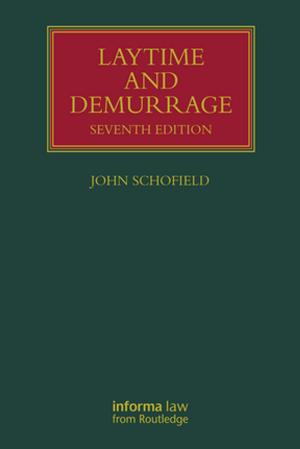Senior Executive Reward
Key Models and Practices
Business & Finance, Management & Leadership, Industrial Management| Author: | Sandy Pepper | ISBN: | 9781317057307 |
| Publisher: | Taylor and Francis | Publication: | April 1, 2016 |
| Imprint: | Gower | Language: | English |
| Author: | Sandy Pepper |
| ISBN: | 9781317057307 |
| Publisher: | Taylor and Francis |
| Publication: | April 1, 2016 |
| Imprint: | Gower |
| Language: | English |
Executive pay remains a contentious topic for many organizations. Unfortunately for company executives, much of the writing about it is either sensationalist or highly academic; none of it much help to the reader looking for a balanced and informed view of the subject. Sandy Pepper provides company executives, investors, and advisers with a summary of the main theories (from economics, game theory and the behavioural sciences) and best practices (in corporate governance, tax, accounting, compliance and so on) that relate to the compensation of senior executives. He also reviews the current state of corporate governance as it affects executive reward in Europe and the US. And he backs the text up with case study examples. Senior Executive Reward is an intelligent, practical and balanced explanation of the basis on which modern executives are compensated - and why. It is must-have reading for anyone who is interested in the complex and often controversial topic of executive pay, particularly remuneration committee members, professional advisers and senior executives anxious to understand for themselves (and explain to others) the basis on which they are rewarded.
Executive pay remains a contentious topic for many organizations. Unfortunately for company executives, much of the writing about it is either sensationalist or highly academic; none of it much help to the reader looking for a balanced and informed view of the subject. Sandy Pepper provides company executives, investors, and advisers with a summary of the main theories (from economics, game theory and the behavioural sciences) and best practices (in corporate governance, tax, accounting, compliance and so on) that relate to the compensation of senior executives. He also reviews the current state of corporate governance as it affects executive reward in Europe and the US. And he backs the text up with case study examples. Senior Executive Reward is an intelligent, practical and balanced explanation of the basis on which modern executives are compensated - and why. It is must-have reading for anyone who is interested in the complex and often controversial topic of executive pay, particularly remuneration committee members, professional advisers and senior executives anxious to understand for themselves (and explain to others) the basis on which they are rewarded.















